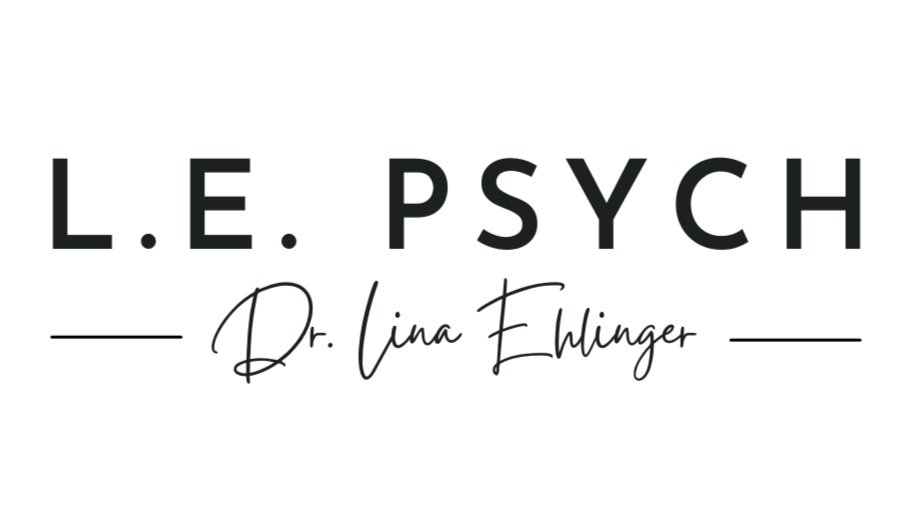Trauma and PTSD
PTSD Therapy in Ohio and Kentucky
You’re not broken. You’re carrying something heavy.
Living with PTSD can feel like your nervous system never gets a break. You’re on edge in meetings, quick to shut down in relationships, or exhausted by constant alertness, even when there’s no immediate danger. You’re constantly thinking about something horrible that happened in the past, whether it happened to you, a close other, or you learned about terrible details.
As a young professional or adult navigating work, relationships, and expectations, trauma may be quietly shaping more of your life than you realize. Maybe you seem “high functioning” to others, but inside, you’re always waiting for the other shoe to drop.
At L.E. Psych, we offer trauma therapy for people who are done surviving and ready to start healing. We specialize in helping high-achieving adults, caregivers, and professionals understand the roots of their distress and reconnect with a sense of control and meaning in their lives.
What is PTSD?
Post-Traumatic Stress Disorder (PTSD) is a response to traumatic events, whether those events were dramatic, subtle, or prolonged over time. Trauma can result from:
Emotional, physical, or sexual abuse
Childhood neglect or instability
Medical trauma or near-death experiences
Loss of a loved one
Military service, first responder work, or caregiving burnout
Car accidents, natural disasters, or violence
If your nervous system is still acting like it’s in danger long after the threat has passed, therapy can help.
PTSD Symptoms in Everyday Life
PTSD doesn’t always look like panic or flashbacks. It might look like:
Struggling to stay present in meetings or conversations
Feeling constantly tired or irritable
Avoiding certain places, people, or topics
Trouble trusting others or setting boundaries
Hyper-awareness of surroundings
Shame, self-blame, or a sense of being “too much”
A sense of disconnection from your body or identity
These symptoms often initially started as your body’s attempt to help you get through a tough time, but ultimately lead to your world shrinking over time. People often seek help when the cost of living with trauma becomes too great.
Our Trauma-Informed Therapy Approach
We work with adults and professionals who are ready to understand their trauma without being retraumatized. You don’t have to talk through every painful memory to feel better. We focus on helping you feel safe and capable in the present, with tools that meet you where you are.
✦ Cognitive Processing Therapy (CPT)
CPT helps you gently challenge beliefs shaped by trauma, like “I’m weak,” “I can’t trust anyone,” or “It was my fault.” These thoughts maintain ways of understanding yourself and the world that reinforce trauma over time. With this therapy, these beliefs shift, and you can begin to rebuild confidence, compassion, and clarity.
✦ Eye Movement Desensitization and Reprocessing (EMDR)
EMDR allows you to process trauma without needing to talk about every detail. Using bilateral stimulation, we target stuck memories and help your brain reprocess them, so they lose their emotional grip and integrate more naturally into your life story.
✦ Trauma-Focused Acceptance and Commitment Therapy (TF-ACT)
TF-ACT supports you in making space for difficult thoughts and feelings, rather than fighting them. This approach helps you reconnect with your values and move toward a life that feels more aligned, even with pain in the picture. It's especially effective for professionals who feel stuck or cut off from purpose.
✦ Cognitive-Behavioral Conjoint Therapy for PTSD (CBCT for PTSD)
For some people, trauma doesn’t just impact the individual, but it affects their closest relationships, too. Cognitive-Behavioral Conjoint Therapy for PTSD is a couples-based approach that involves your partner in the healing process. This therapy focuses on improving communication, building mutual understanding, and helping both partners feel safer and more supported.
CBCT can reduce PTSD symptoms while also improving relationship satisfaction, making it a valuable option for couples navigating trauma together. Another great thing about CBCT is that it isn’t just limited to romantic partners. CBCT is a great option for siblings, friends, parents and kids, whether one or both people are living with trauma.
✦ Prolonged Exposure Therapy (PE)
Prolonged Exposure is a gold-standard treatment for PTSD that helps reduce fear and avoidance by gradually and safely approaching trauma-related memories and situations. If you’ve been avoiding reminders of the trauma—or avoiding your own emotions—PE can help you regain a sense of mastery and calm.
In PE, we take things at your pace. You’ll learn to face what’s painful with the tools and support to tolerate and eventually release it, instead of letting it control you.
✦ Present-Centered Therapy (PCT)
PCT is a great option for folks who do not want to revisit the traumatic event explicitly. In this therapy, we focus on how trauma is showing up in your current life: at work, in your relationships, and within yourself. PCT helps reduce avoidance and build trust in your present-day strengths without having to relive the past.
What PTSD Therapy Looks Like at L.E. Psych
You’re not here to be “fixed.” You’re here to be understood, supported, and gently challenged in a space that’s steady and safe.
In sessions, you can expect:
A collaborative, conversational approach
Real-world tools for managing anxiety, panic, and overwhelm
Space to process emotions at your pace
Guidance on navigating work stress, burnout, and relational tension
Support in regaining your sense of self and stability
Begin Trauma Therapy in Ohio or Kentucky
You deserve to feel safe again. Not just physically, but emotionally, too. If trauma is keeping you stuck in survival mode, therapy can help you move forward with greater freedom and self-trust.
PTSD therapy is available online across Ohio, Kentucky, and 38 other states. Reach out now for your free initial consultation.

